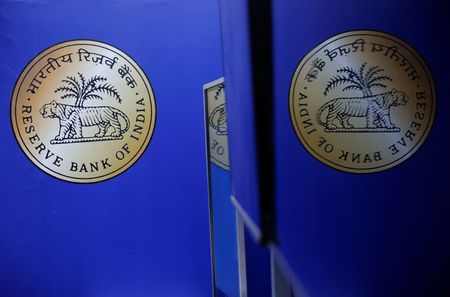By Chibuike Oguh
NEW YORK (Reuters) -Global stocks slipped on Friday, finishing the week lower amid U.S. election jitters, while oil prices rose due to concerns about fighting in the Middle East.
Republican former President Donald Trump and Democratic Vice President Kamala Harris are polling neck-and-neck in crucial swing states ahead of the Nov.
5 election. Investors are anxious about a contested result roiling world markets and unleashing fresh geopolitical uncertainty.
The benchmark S&P 500 ended slightly lower and closed the week down nearly 1%, driven by losses in utilities and financials as well as gains in technology and communication-services stocks.
Nasdaq finished the week higher.
The Dow Jones Industrial Average fell 0.61% to 42,114.40, the S&P 500 eased 0.03% to 5,808.12 and the Nasdaq Composite rose 0.56% to 18,518.61.
The European shares index ended down 0.03% after giving up gains in choppy trading and finished 1.2% lower for the week.
Overnight in Asia, MSCI’s broadest index of Asia-Pacific shares outside Japan closed lower by 0.02% but dropped nearly 2% for the week.
“The market is still somewhat choppy and part of that is we were up six weeks in a row and up 10 out of 11 months and right now the market, after that big run, is facing these interest rates that are staying a little bit higher,” said Keith Lerner, co-chief investment officer at Truist Advisory Services in Atlanta.
“Historically, the volatility in an election year tends to spike in October.
We haven’t seen a spike, but it’s very normal for markets to get more jittery into the election.”
Brent crude futures settled up 2.25% at $76.05 a barrel. U.S. West Texas Intermediate crude settled up 2.27% to $71.78.
Both crude futures finished the week up about 4%.
U.S. Treasury yields edged higher as investors wait on key employment data next week for fresh clues on the likely path of Federal Reserve interest-rate cuts.
Traders are pricing in near-95% odds of a 25-basis-point cut at the Fed’s November meeting, according to the CME Group’s FedWatch Tool.
The yield on benchmark U.S. 10-year notes rose 3.8 basis points to 4.24%.
The dollar advanced and was set for a fourth weekly gain against Japan’s yen, as an uncertain backdrop for markets sent the yen near three-month lows ahead of an election in Japan over the weekend.
The dollar strengthened 0.26% against the yen to 152.22. Against the Swiss franc, the dollar strengthened 0.08% to 0.866. The euro, however, was down 0.29% at $1.0796. Sterling weakened 0.08% to $1.2961.
The dollar index, which measures the greenback against a basket of currencies including the yen and the euro,rose 0.24% to 104.30.
Gold prices rose in choppy trading after retreating from record highs.
Spot gold rose 0.28% to $2,743.31 an ounce. U.S. gold futures settled 0.2% higher at $2,754.60. Prices had hit an all-time high of $2,758.37 on Wednesday.
“Over time, interest rates, inflation and the economy are the leading factors that affect the stock market,” said Tom Plumb, CEO and portfolio manager at Plumb Funds in Madison, Wisconsin.
“But in the short run, there’s no question that this is a market being bounced around by political developments and expectations, and the general perception that Trump would be better for the markets than Harris.”
(Reporting by Chibuike Oguh in New York; Editing by Marguerita Choy, Hugh Lawson and Rod Nickel)










